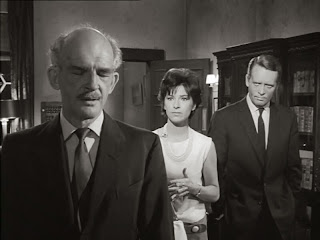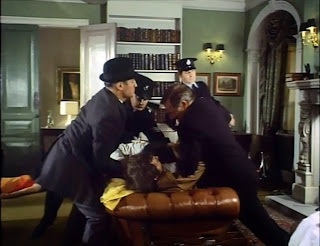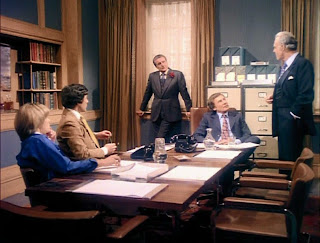Danger Man: The Battle of the Cameras

You'll notice I've side-stepped Colony Three. I will probably write about it at some point, but at this point I want to write about Danger Man as Danger Man, despite the unavoidable Prisoner overtones, caused in large part by my coming to that series first, & also my explicitly writing about Number 6 as John Drake. At some point I will also write about The Prisoner coming from a different viewpoint. Also, this is not a systematic commentary on Danger Man - I'm feeling free to select the episodes I like. The Battle of the Cameras feels quite different, for me, from the episodes where Drake is more-or-less obviously winding up (or being wound up) to resigning. It feels lighter, less spy-like. Perhaps it draws more on the sixties milieu of fascination with all things foreign, just then being opened up affordably to the unwashed masses. This Danger Man - perhaps, I watched them avidly as a child but have found them impossible to watch as an adult - feels more like a Sain











